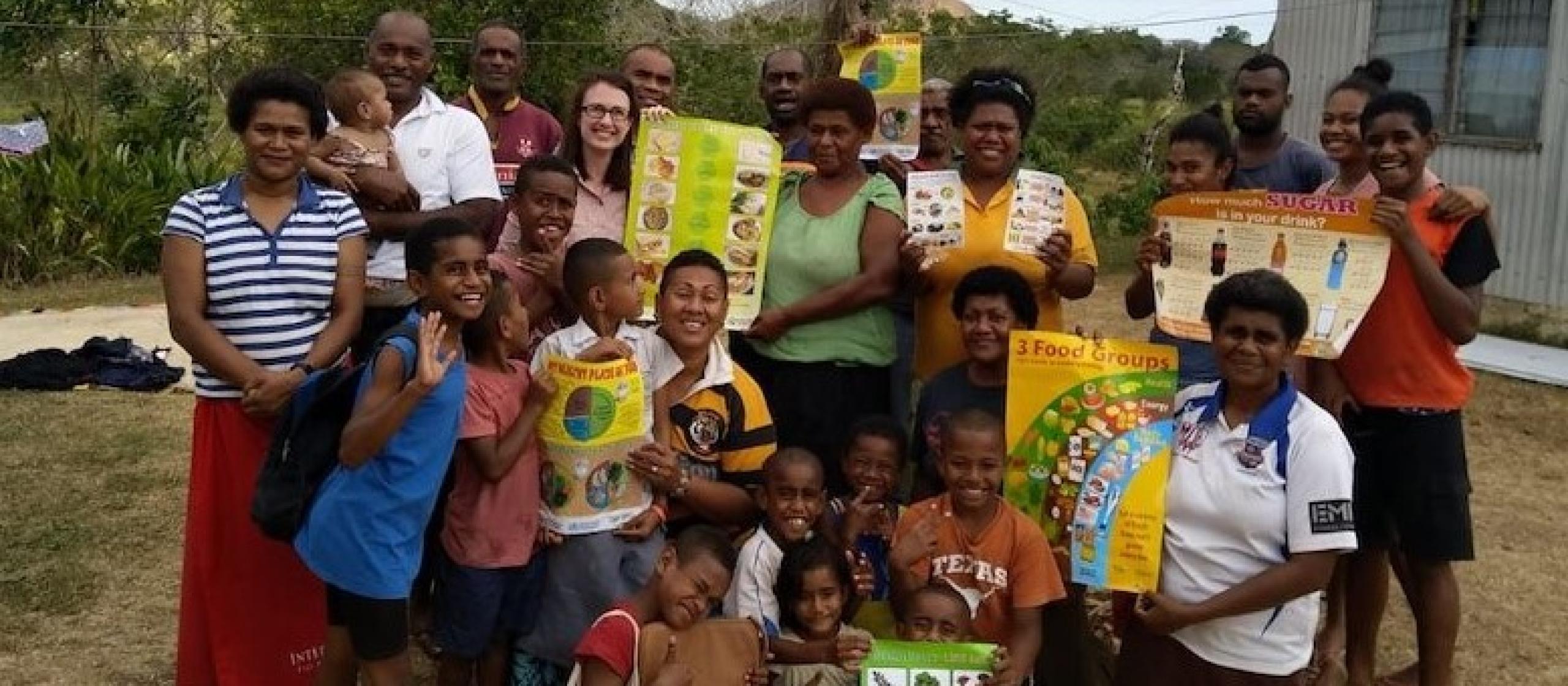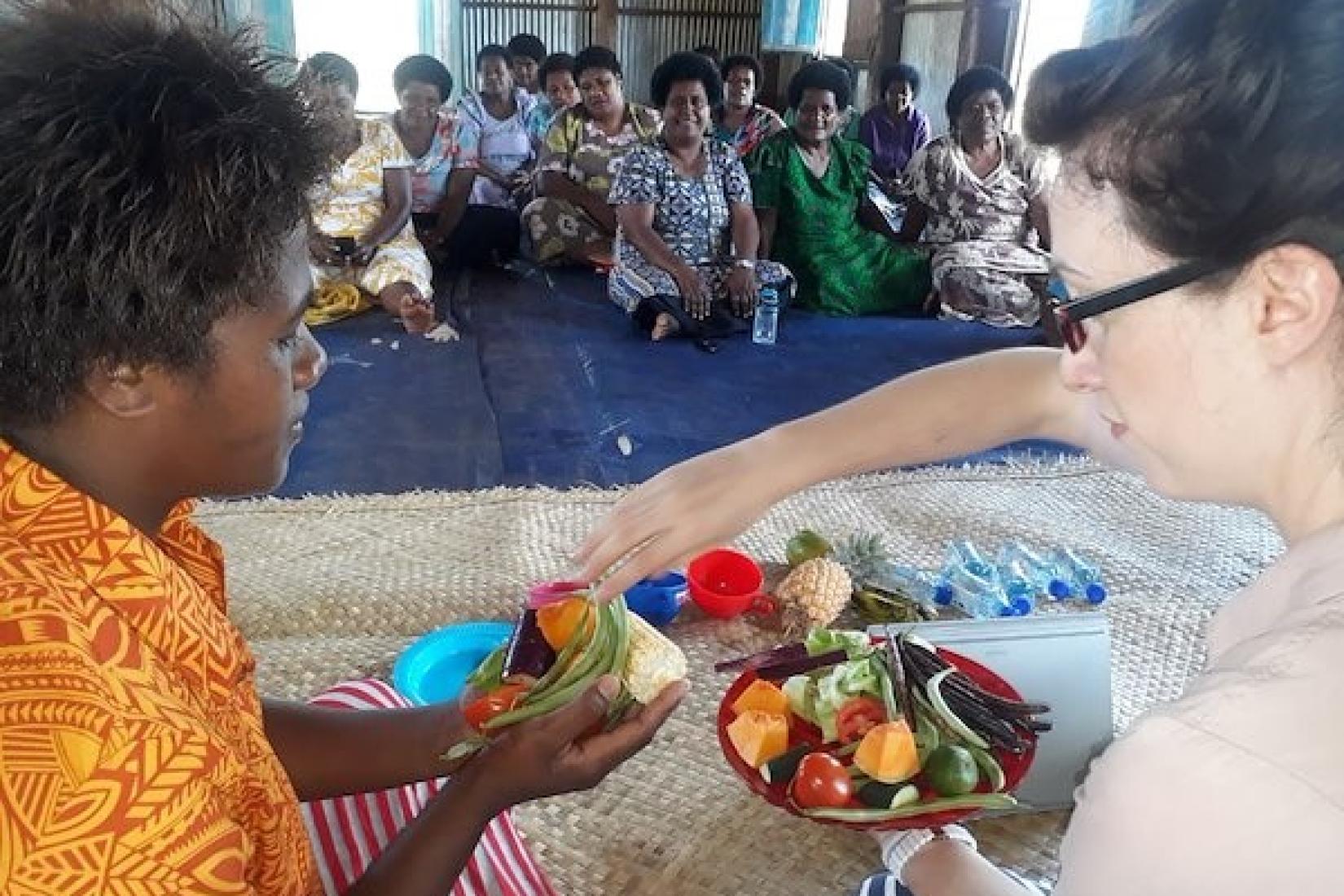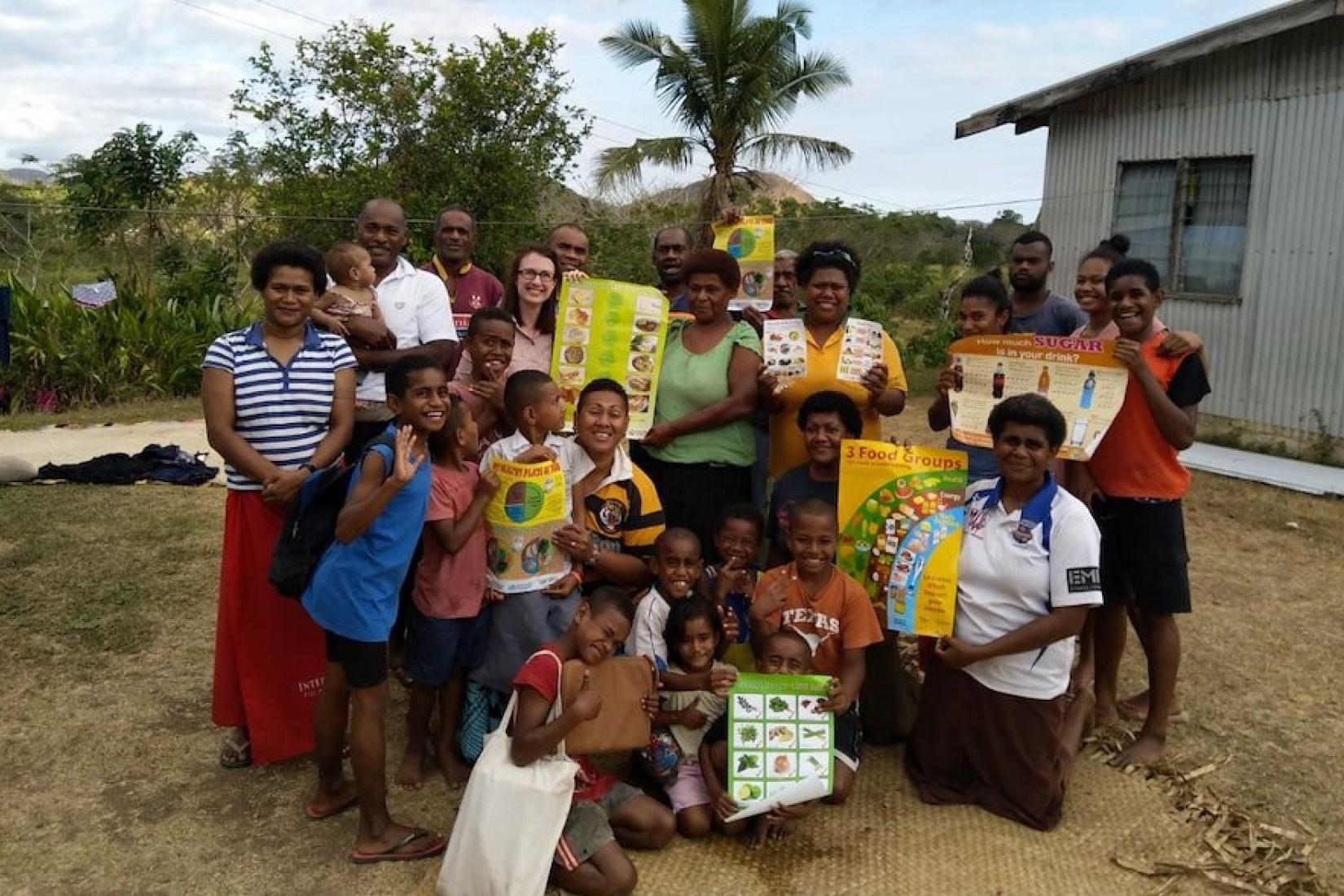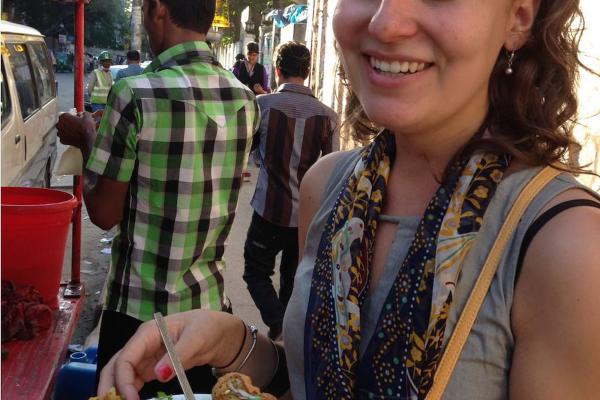‘We did some 24-hour food recall work—a typical breakfast could consist of white rice with coconut cream, and tea with four teaspoons of sugar. In the Pacific, there’s an emphasis on eating carbs,’ she says, ‘and protein is only eaten on special days, such as Sundays.’
She is now writing up the data reports, and will ‘perhaps pursue a PhD next year’ but will remain focused on contributing her nutritional expertise as part of a multidisciplinary team.
‘Food security is not just about ensuring people have enough food to eat. It’s also about ensuring they have access to an affordable, diverse diet, which includes a colourful variety of fruits and vegetables to improve their health. It will be exciting to see where this goes in the next 20 years and hopefully we can all work together to make a difference.’
DR JESSICA BOGARD
Originally trained as a clinical dietitian, Dr Jessica Bogard was looking for something different to her hospital role of one-on-one patient counselling. When the opportunity to work as a volunteer for 12 months with WorldFish in Bangladesh arose, she seized the chance.
As a city dweller, born and bred, this project was her first foray into agriculture. ‘It was really interesting work,’ Bogard says, ‘bringing together agricultural research and nutrition. I extended my stay in Bangladesh, and then came back and wrote up the project as a PhD, which I finished last year.’
She remained at WorldFish until early this year, when she joined the Commonwealth Scientific and Industrial Research Organisation (CSIRO) as a nutrition systems scientist in their agriculture and food unit. ‘My work at the CSIRO is quite broad,’ Bogard says. ‘I sit with the global food and nutrition security group under the agriculture and global change program. It’s an interesting area, because there is a lot of momentum globally on the importance of linking food systems to nutrition and health.’
Her role is to be the nutrition voice in a multidisciplinary team that includes agricultural scientists, environmental scientists, and data and modelling experts—all working to find solutions to the big challenges facing agriculture, such as climate change and food security. ‘I try to influence research so that nutrition and human health are part of the discussion.’







